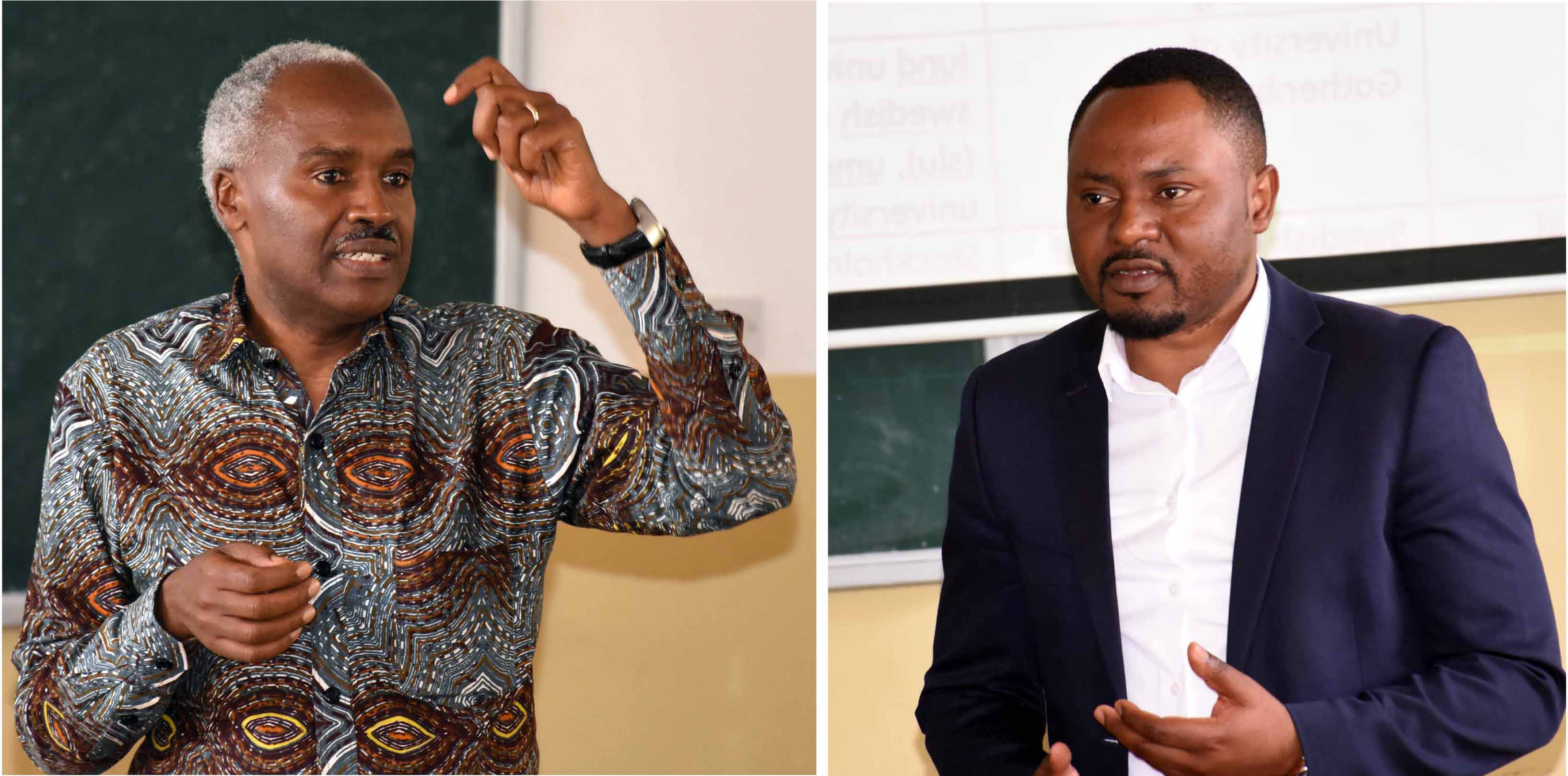Research team leaders who will drive the 4th phase of UR-Sweden Programme met to discuss major activities and working modalities that will mark the phase to be carried out until 2024 . The meeting follows USD35M cooperation agreement signed between Rwanda and Sweden to boost UR capacity building in research and deliver on Rwanda National Development Agenda.
A section of team leaders for the 4th phase of UR-Sweden Programme
The meeting was officiated by Amb. Dr Charles Murigande who noted that the coming 5 year phase will create a huge impact of the development of capacity within the University of Rwanda. Murigande who is UR Deputy Vice Chancellor for Institutional Advancement also called on team leaders to recruit PhD candidates who will form a critical mass of academics who can teach well and conduct research on issues affecting the country.
According to Raymond Ndikumana, the Overall Coordinator of UR-Sweden Programme the 2019-2024 phase is imbedded into the proposed ‘Theory of Change’; an approach that seeks to eradicate poverty and advance the development of the country through interdisciplinary research. He added that the support will enable training of quality staff who will deliver success and ultimately complement to UR ambition to be a research led institution.
“The phase targets to build foundation and capacity for UR to contribute to poverty eradication while propelling Rwanda’s economic transformation through collaborative research” Ndikumana said.

Amb. Dr Charles Murigande (L) and Raymond Ndikumana during the meeting
The Programme plans to enrol 80 PhD candidates who will be trained both at UR and in Swedish varsities on Sandwich mode. The support will also be extended to other key areas such as ICT, library, innovation, research management and research grants management.
The phase will continue to support ICT which has been the major driver of research at UR in that it increased the use of ICT resources, upgraded the ICT infrastructure and built capacity of ICT staff. It is also expected to maximize the use of available ICT solutions and focus more on the research-need.
In library, the move will be to communicate the research that have been done in the University of Rwanda including research conducted as part of students’ dissertation and PhD thesis. Besides, the support will ensure that all research and published papers are digitized and made available through the University repository.
The Programme which started July 2019 with a span of five years, will be implemented around seventeen research projects. All projects embrace national and regional priorities, global commitment such us SDGs and other crosscutting areas such as gender and environment.
Participants in the meeting